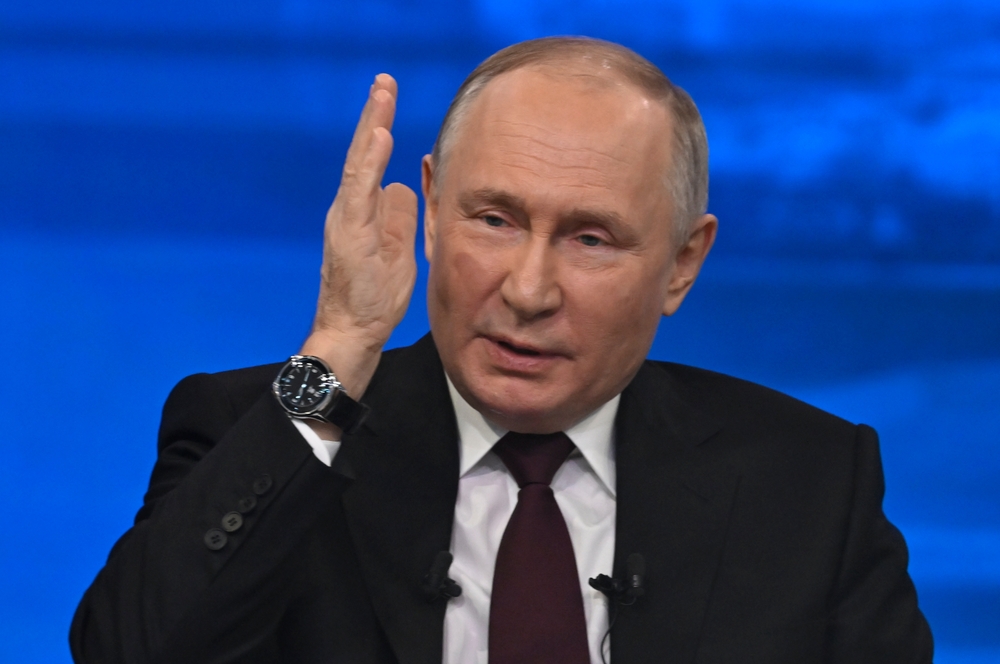Trump Criticises Putin for ‘Destroying Russia’ Over Ukraine War
U.S. President Donald Trump has accused Russian President Vladimir Putin of “destroying Russia” by refusing to negotiate an end to the ongoing war with Ukraine. Speaking to reporters at the White House on Monday, Trump suggested that Putin’s reluctance to pursue peace is damaging Russia’s economy and global standing, adding that Moscow is facing mounting challenges due to its prolonged military engagement.
The war in Ukraine, which began in February 2022, has now entered its third year, with no clear end in sight. Despite initial expectations of a swift Russian victory, the conflict has turned into a drawn-out battle of attrition. The war has taken a significant toll on both sides, with heavy casualties, economic disruptions, and mounting international pressure.
Trump’s Plan to End the War
During his presidential campaign, Trump repeatedly claimed that he could bring a quick resolution to the war if re-elected. His proposed strategy includes using U.S. military aid as leverage to pressure Ukraine into negotiating a settlement with Russia. Trump's latest remarks suggest he remains committed to finding a diplomatic solution, though critics argue that his approach could favour Russian interests at the expense of Ukrainian sovereignty.
Trump has previously faced criticism for his relationship with Putin, particularly after their 2018 Helsinki summit, where he appeared to accept the Russian president’s denial of interference in U.S. elections over the findings of American intelligence agencies.
Zelensky’s Response to Trump’s Comments
Ukrainian President Volodymyr Zelensky, who has received substantial military and financial support from the U.S. and its allies, has also indicated a willingness to consider diplomatic solutions. Trump claimed that Zelensky has expressed an interest in peace negotiations.
Trump believes Ukraine is open to talks if the conditions are right. However, Zelensky has consistently stated that any peace deal must respect Ukraine's territorial integrity and sovereignty.
Russia’s Military Build-up and NATO Concerns
Despite calls for peace, Russia appears to be preparing for a prolonged conflict. A senior German military official, General Christian Freuding, has warned that Russia is rapidly rearming with assistance from Iran and North Korea, stockpiling weapons and military equipment at an alarming rate.
NATO has responded by increasing its military presence in Eastern Europe and reinforcing defences in member states bordering Russia. The alliance continues to supply Ukraine with weapons and training, emphasising the need for deterrence against further Russian aggression.
Related: Trump Urges Putin to End War in Ukraine or Face Increased Sanctions
Related: A Comprehensive Overview of Donald Trump’s Foreign Policy: Key Actions and Controversies
Economic Consequences for Russia
Trump’s assertion that Putin is “destroying Russia” is supported by evidence of economic strain within the country. Western sanctions have severely impacted key sectors of the Russian economy, including energy exports, technology imports, and financial institutions.
The Russian ruble has depreciated significantly, inflation has risen, and the country is experiencing a labour shortage due to the mobilisation of men for the war effort. Despite these challenges, the Kremlin has managed to sustain its war efforts through increased oil exports to countries such as China and India.
Experts warn that continued military spending is unsustainable in the long term and could lead to greater domestic discontent within Russia. Recent reports indicate growing frustration among ordinary Russians as living costs rise and economic opportunities dwindle.
Europe’s Stance on the Conflict
European leaders have also weighed in on the ongoing war, with French President Emmanuel Macron warning that Russia poses a long-term threat to European security. Speaking shortly before Trump’s inauguration, Macron stated:
Macron’s remarks reflect broader European concerns about the durability of NATO’s support for Ukraine and the potential for future Russian aggression. European Union leaders have called for continued sanctions and military support to Ukraine while advocating for diplomatic engagement with Moscow.
Related: Donald Trump's First Day in Office: Executive Actions and Policy Shifts
Related: The Paris Climate Agreement: A Comprehensive Overview of Its Goals, Challenges, and Future Prospects
Putin’s Reaction to Trump’s Victory
Despite the tensions, Putin extended his congratulations to Trump ahead of his inauguration as the 47th U.S. president. The Kremlin’s message of goodwill signals that Russia may be open to discussions with the new U.S. administration, though it remains unclear how much common ground can be found between the two leaders.
In the past, Putin has expressed scepticism about Western intentions and has repeatedly blamed NATO for escalating tensions in the region. However, with mounting economic and military pressures, the Russian leader may be more inclined to seek a resolution that allows him to claim a political victory.
The Broader Global Impact
The war in Ukraine has had far-reaching implications beyond the immediate conflict:
- Global Energy Markets: The disruption of Russian energy supplies to Europe has led to skyrocketing gas prices and a push for alternative energy sources.
- Food Security: Ukraine, a major grain exporter, has faced significant challenges in maintaining exports, leading to global food shortages and price hikes.
- Military Alliances: Countries such as Finland and Sweden have joined NATO in response to the perceived Russian threat, further isolating Moscow.
- Geopolitical Shifts: The war has prompted a reassessment of global alliances, with China and Russia strengthening ties while Western nations consolidate their partnerships.
Donald Trump's recent comments on Russia’s handling of the war in Ukraine highlight the complexities of the conflict and the potential for renewed diplomatic efforts. While Trump has expressed confidence in his ability to negotiate a peace deal, the realities on the ground suggest that a resolution will require substantial compromises from all parties involved.
As Russia continues its military build-up and NATO strengthens its support for Ukraine, the path to peace remains uncertain. The coming months will likely determine whether diplomatic efforts can succeed or if the war will continue to drag on, further exacerbating global tensions and economic instability.














